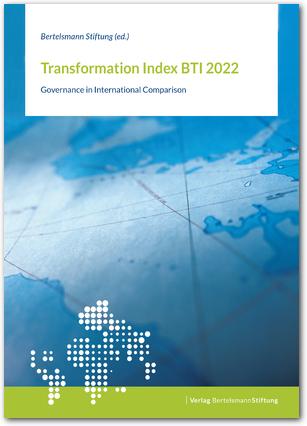
Democracy under pressure worldwide: Bertelsmann Stiftung (bertelsmann-stiftung.de)
A creeping autocratization has long been evident: Over the past 10 years, the quality of democracy has declined in nearly one in five democracies, including in regionally important and once-stable democracies. Meanwhile, many autocracies have further expanded their repression, abuses of power, and restrictions on the freedoms of expression and assembly. Seven states that were considered "defective democracies" just two years ago have been relegated to the category of autocracies in the BTI 2022. The past decade has also seen regime changes in the opposite direction, for instance in Armenia, Sri Lanka and Tunisia. However, these young democracies have experienced numerous setbacks.
Few governments pass the COVID-19 stress test
The pandemic functioned as an extreme stress test for all governments, exacerbating problems and undesirable developments. The economic shock triggered by COVID-19 led to a significant decline in economic performance in 78 states. This in turn further constrained governments’ fiscal policy flexibility, making it more difficult to cushion the social consequences of the pandemic. Most critically, however, many governments lack the political will to combat poverty and social exclusion effectively. After years of falling poverty rates, the number of people in need has again risen, even as social inequality has expanded. The BTI has identified massive, structurally embedded social exclusion in 80 countries.
Politically, autocracies in particular used the pandemic to further limit fundamental rights and suppress critical voices. Populists such as Brazil’s President Jair Bolsonaro sought and failed to generate political capital from the pandemic through their polarizing behavior. Instead, their attempts to ignore scientific findings, reject international cooperation and downplay COVID-19’s danger allowed the virus to spread almost unhindered, with severe economic and social consequences.
Democratic decline and poor governance go hand in hand. Populists and autocrats govern in a more dirigiste, inefficient manner, and are thus for the most part less resistant to crises.
Hauke Hartmann, governance expert at the Bertelsmann Stiftung
The pandemic has shown that governments’ ability to manage crises successfully depends very strongly on their governance capacity, as measured by the BTI's Governance Index. Among the 36 states that perform well in this area, there are only three autocracies. However, these countries were just as successful in containing the pandemic as well-governed democracies such as South Korea, Taiwan and Uruguay. For the first time, this year’s edition of the BTI rates more than 100 countries as having governance that is only of moderate quality or lower, falling to failed at worst. The vast majority of these governments proved incapable of responding adequately to the pandemic and its attendant political, economic and social challenges.
Civil societies are resisting authoritarian trends
This year’s BTI report also offers one piece of hopeful news. Around the world, civil engagement and social solidarity emerged with remarkable strength to help bridge gaps in state services, often precisely where governments failed to respond effectively to the pandemic. Civil society actors have also served as the last line of defense in the fight against autocratization, for instance in Belarus, Myanmar and Sudan. They have been vehement in calling for overdue social reforms such as greater social inclusion and representativeness in Chile, and have successfully stood up against persistent corruption and office abuse, as seen in Bulgaria, Romania and Czechia. Today, the greatest impetus toward democratic innovation and renewal is coming far more often from critical civil societies than from governments.










Add new comment